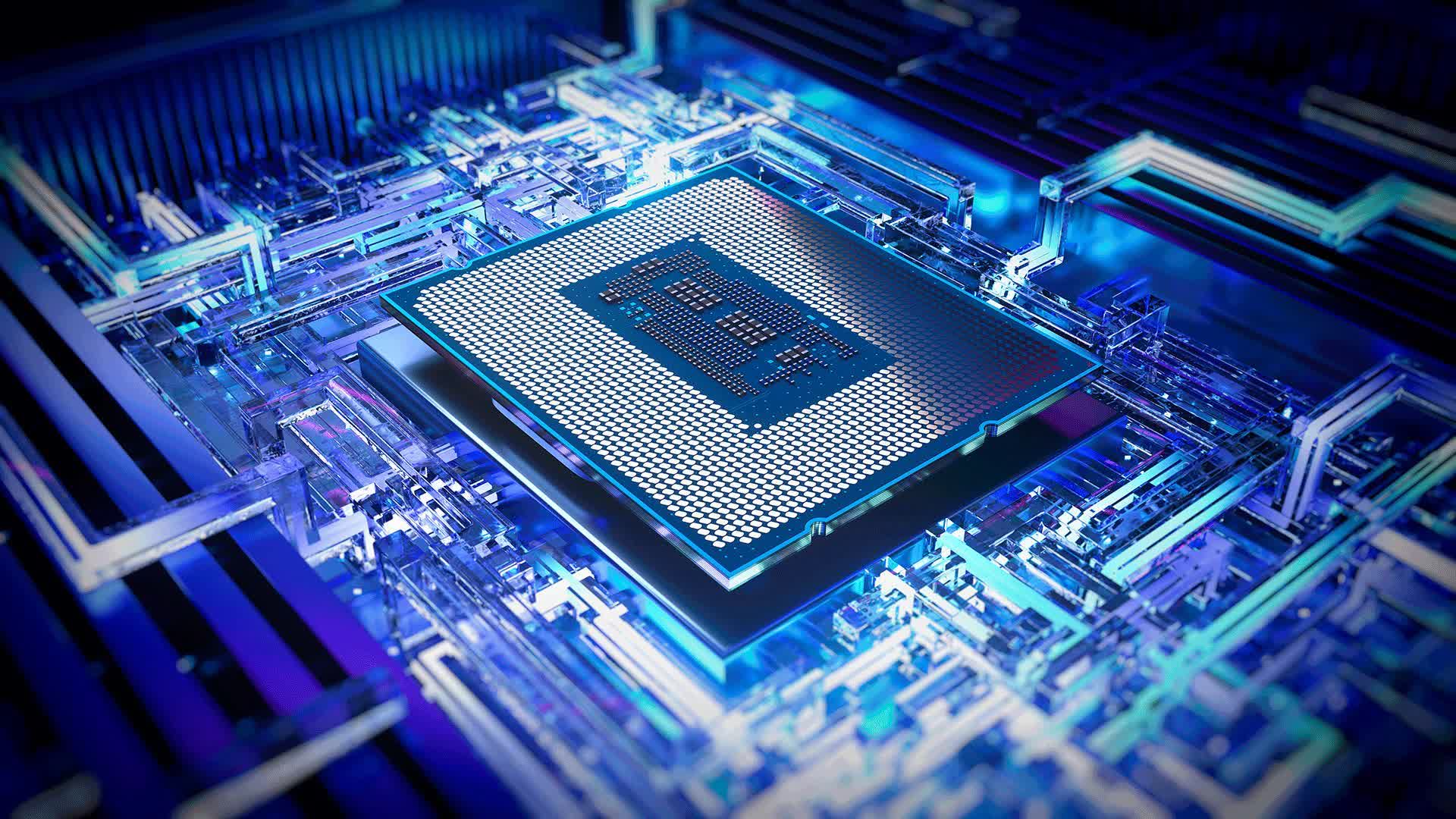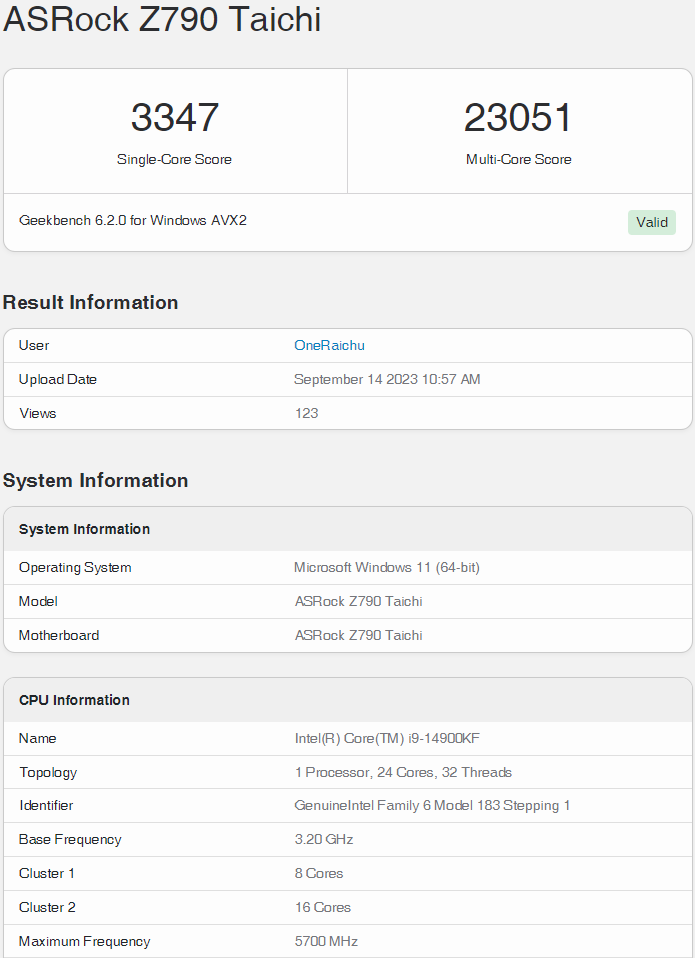The big picture: Intel will likely unveil its 14th-generation Core processors next week before shipping them next month. Most of the news concerning them hasn't been impressive, with some leaks indicating that the lineup's higher-end models may show respectable improvements over their predecessors.

Known leaker OneRaichu acquired an Intel Core i9-14900KF and recently posted two Geekbench reports with the upcoming 24-core CPU. One other result from an unknown user also appeared, showing similar numbers. The processor's highest single-core and multi-core scores on Geekbench 6 were 3347 and 23051 respectively. The figures suggest a roughly 10 to 12 percent performance uplift over the CPU's direct predecessor, the 13900KF.
All three tests occurred on an ASRock Z790 Taichi motherboard with DDR5-7000 memory without specifying the power plan used, so we still don't have a complete picture of the new generation's gains. The non-KF i9-14900K improved modestly over its 13th-generation counterpart in a Geekbench test earlier this month using 4800 RAM on a balanced power plan.

One of the most interesting statistics from the 4900KF appears in OneRaichu's Geekbench 5 test, where the maximum CPU frequency reached 5,953MHz, tantalizingly close to the 6GHz mark. The processor features eight performance cores and 16 efficiency cores.
Intel expects to officially reveal the new series of CPUs at its annual Innovation event on September 19 and 20. Reports suggest the company will launch six processors on October 17 – K and KF models ranging from i5 to i9. Non-K variants with limited wattage envelopes will likely appear close to CES 2024 in January.
A significant leak from MSI confirmed that the 14th generation is called Raptor Lake Refresh, indicating a minor upgrade from the 13th-gen Raptor Lake. The leak estimated an average three percent gen-on-gen performance improvement, with the i7-4700K as the outlier at 17 percent. Despite the modest change, leaked store prices indicate a 15 percent price increase over the previous generation.
The best situation in which to purchase a Raptor Lake Refresh CPU is likely as a replacement for an Alder Lake. The new lineup's compatibility with Intel's current LGA 1700 socket allows owners of 12th and 13th-gen processors to upgrade without buying a new motherboard.
Users looking for a more substantial boost should likely wait and build a new PC when Intel releases the 15th-generation processors sometime in late 2024. They will require new motherboards with the LGA 1851 socket and DDR5 RAM.
https://www.techspot.com/news/100158-intel-core-i9-14900kf-appears-geekbench-nearly-reaching.html